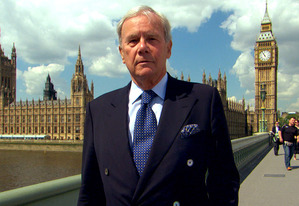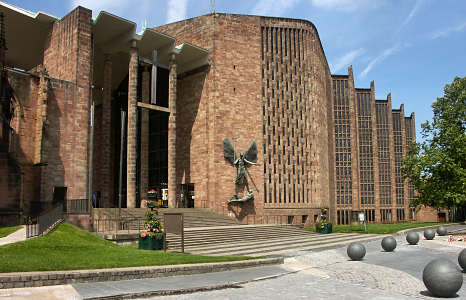Events rush past us so swiftly in these days of twitter and tweet and 24/7 news that we do well to stop and pause when something “a little bit different” beams in upon our global technocratic village. And when television finally does something worth praising we should stop and take note.

This was the case for multiple millions of TV viewers in the middle of the London Olympics this summer. On August 11 veteran broadcaster hosted a special 45 minute tribute to the British people’s heroic stand against the Nazi terror in the summer and fall of 1940. “Their Finest Hour” it was called and it was the fruit of a two-year effort by Mr. Brokaw and NBC producers Brian Brown and Joe Gesue. Most people enjoyed it though some twittered their indignation that track and men’s diving was interrupted for a “war story.”
Host Brokaw explained on air to Bob Costas that “during a time of great economic uncertainty it is important to remember the lessons of sacrifice and unity in that much more troubled time.”
It was like this.
In May, 1940 German dictator Adolph Hitler launched his mechanized legions on a brilliant and slashing attack on the French and British armies in Belgium and France. Ostensibly the two sides had been at war since September, 1939 but not much had happened. It had been labeled a “phoney war” by the press – the Sitzkrieg. That soon changed. In late May harried British forces fell back on the port of Dunkirk almost certain to be smashed against the sea but for an uncharacteristic German pause, ostensibly to consolidate their lightning-fast gains. This gave the British a chance to pull nearly 340,000 English and French soldiers from the jaws of death and shame back to England – the Dunkirk Miracle.
Brokaw interviewed 93 year old David Wadey who was there, evacuated by rowboat from Dunkirk as the British sent almost everything that could float to bring the boys home. Red Cross volunteer Mary Verrier told about the quiet courage of the wounded lads in their canvas stretchers as they waited for their turn – the spirit of “Keep calm and carry on,” a retro British slogan which became a sort of whimsical motto for visitors at the London Games this summer.
Then in September Hitler launched his powerful air force on England’s cities – the Blitz it was called. Author Juliet Gardiner explained how every night, “every night from September to the end of November there were blistering air raids on English cities.” As she summarized it: “eight months of real attrition,” stark terror from the air. Tom Brokaw interjected that this would be like New York, San Francisco and Los Angeles being attacked incessantly for a whole winter! “Yes,” Gardiner replied calmly.
Former Wing Commander Tom Neil of the Royal Air Force also sat in front of the NBC cameras looking not a day over 70. He was one of the heroic “few” at age 19 who stood up to the Nazi Air Force in that summer of 1940’s Battle of Britain. Three thousand young pilots handed Hitler his first defeat of the war. Even seven Americans flew for the RAF and a former Olympian, Billy Fiske, became the first American to die in combat in WW2. Heroic efforts, valiant times.
But the Blitz was horrific. There were 100,000 casualties, 40,000 dead and two million left homeless. One of our Glendora elders, Roger Lippross, remember his roof being blown off during a nighttime raid and waking up to blue sky where his ceiling had been.
The real Night of Infamy was November 14-15, 1940 and the crucifixion by flame and fire of the city of Coventry two hours north of London. 500 planes dropped 600 tons of high explosives with incendiaries. More than 500 people died, 4,000 homes were destroyed. Prime Minister Winston Churchill himself reported that the life of this industrial city had temporarily come to a standstill. Tom Brokaw introduced us to 79-year-old Mike Logan who was only seven that night. He was sheltered in his mother’s arms as a German bomb hit the air raid shelter. Fourteen were killed around them. His mother died some 40 minutes later in a hospital. His grief was palpable on the TV screen, his gaunt and tortured face staring at viewers across the TV set – and across the decades – as Tom Brokaw said,
“This must seem like yesterday to you.”
“I’ll never forget it,” Mike Logan replied, in haunting understated British sincerity.

But herein hangs another tale and one well fitted for a church web site, a tale of redemption and reconciliation. As broadcaster Brokaw intoned, Coventry’s shattered remains have been left as an indictment of the cruelty and barbarity of war. But a new cathedral now sits in Coventry. “The new cathedral,” said Tom Brokaw, “in spirit and deed [is] a place of reconciliation. An essential aspect of the church’s mission is reaching out to other communities traumatized by appalling apocalyptic destruction, such as Dresden, Germany leveled by 1400 Allied bombers.”
In a great moment of “Bardic Television” – the little box as transmitter of an authentic moment of collective high inspiration – NBC skillfully wove in how 79-year-old Mike Logan, orphaned in the Coventry attack, had made the church’s mission his own.
TOM BROKAW: “Were you able to reconcile in your heart?”
MIKE LOGAN: “Yes. I went to Dresden last year and I met survivors in Dresden just like myself…and they treated me very well. I showed them the photographs of my parents and they showed me photographs of their parents. And there was one lady there who lost her mother and father, and she was an only child. She showed me where she used to live and there was nothing there.”
Nothing there.
What an indictment of the waste and wanton cruelty of war and yet also a redemptive counter-punch from the human spirit of the possibility of reconciliation between so-called enemies, a spirit that can transform even a horrific tragedy into a moment of transcendence. Well done, NBC. Thanks Tom Brokaw. There’s still some great things on television if we are a bit discriminating.